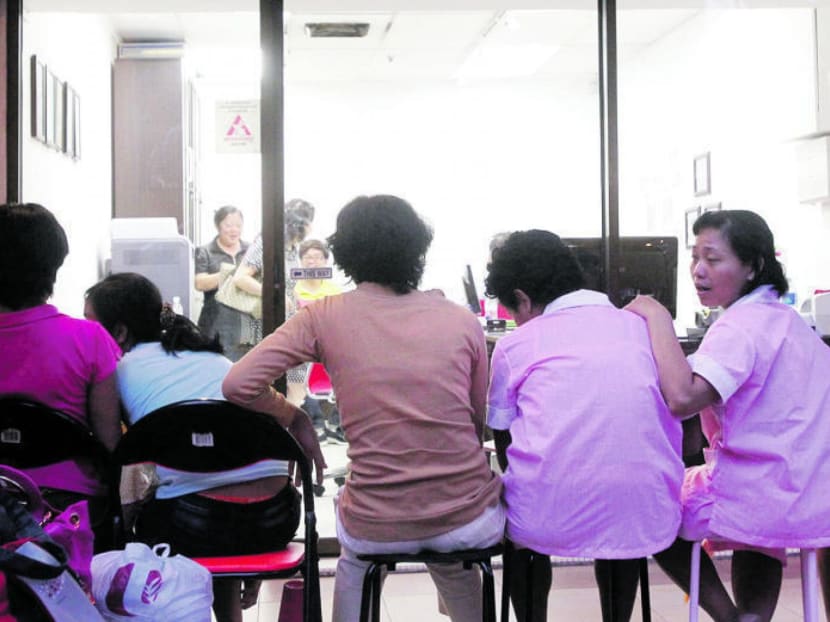Indonesia domestic worker training centres see slump in business
JAKARTA — Indonesia has declared a moratorium that will stop companies from sending domestic workers to work in 21 Middle Eastern countries, starting this August. Months before the moratorium is set to begin, job training centres in the capital are already feeling a slump.
JAKARTA — Indonesia has declared a moratorium that will stop companies from sending domestic workers to work in 21 Middle Eastern countries, starting this August. Months before the moratorium is set to begin, job training centres in the capital are already feeling a slump.
Since the announcement of the moratorium earlier this month, Sinar Berlian Mandiri Job Training Centre in Jakarta has reported a fall in business.
“We’ve experienced a reduction in the number of trainees since the registration to become a domestic worker in the Middle East was closed,” said Ms Nursanti, head of the centre. “It’s a significant drop compared to just before the moratorium was announced.”
The Sinar Berlian Mandiri centre used to train hundreds of domestic workers bound for the Middle East every month. The government moratorium has caused the dip in demand and forced training centres to shift their focus to filling demand from Asia Pacific countries.
But not all training centres can cope with such a drop in business and some have had to put their instructors on temporary leave.
Indonesia’s Ministry of Manpower said they have the right to issue a moratorium if employment conditions in a certain country degrade human values and the national dignity.
In 2013, the International Labour Organization said Middle Eastern nations do not give migrant maids days off, and that only one per cent of these nations guarantee minimum wages.
Despite this, many low-educated women in Indonesia are still lured by the possibility of earning more money overseas.
“This policy has the potential to increase people smuggling to countries where the moratorium is in place,” said Executive Director of Migrant Care Anis Hidayah. “We’ve seen cases of it already happening, when Indonesia issued a temporary moratorium to at least six Middle Eastern countries.”
Ms Anis also criticised the government for not doing enough to help the migrant workers.
But Ms Reyna Usman, Directorate General of Work Training and Placement at the Ministry of Manpower, disagreed as steps are being taken to improve human resources in regions where many domestic workers come from.
“Migrant workers who’ve come home or plan to work overseas should go to state-run job training centres that are free of charge. Our job training centres not only prepare people to work in industries but also to become entrepreneurs,” said Ms Reyna.
Domestic workers already employed in the affected countries will be allowed to stay at their jobs.
In the meantime, Indonesia will tighten the placement of domestic workers to parts of East and Southeast Asia, such as Singapore, Malaysia and Hong Kong. These measures will include auditing domestic helper training centres and blacklisting rogue agencies. CHANNEL NEWSASIA







